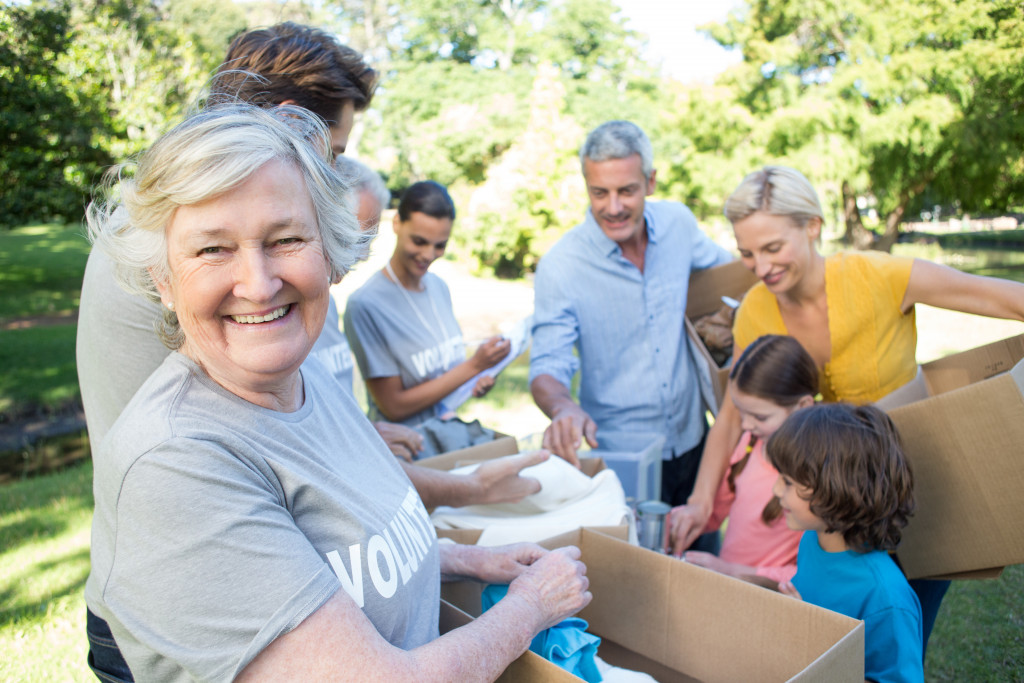- Provide confidential support channels for young people facing family problems. You can do this through hotlines or counseling services.
- Facilitate peer support groups in the community that allow young people to share their problems in a safe environment.
- Offer skill-building opportunities for young people to develop new skills and interests.
- Promote healthy coping mechanisms such as mindfulness, breathing techniques, and finding physical activities that help them relax.
- Advocate for policy and legal reforms that protect young people from further harm due to their family circumstances.
As a government or non-profit organization that focuses on the welfare of families and children, it’s essential to provide the proper support for young people experiencing family issues. Growing up is difficult enough, but when family problems arise on top of that, it can be a burden that some young people may find impossible to bear.
Fortunately, there are ways to help these young people cope with the challenges and uncertainties they face. In this blog, you will learn tips for organizations that want to help the community’s youth overcome family issues and thrive.
Provide Confidential Support Channels
Young people experiencing family problems may feel incredibly vulnerable and isolated and may be hesitant to talk about their issues. As a government or non-profit organization, you can provide them with confidential channels of support – whether that’s through hotlines, online forums, or counseling services. Make sure that these channels are available 24/7 and staffed by trained professionals who can provide assistance and advice whenever needed.
Facilitate Peer Support Groups

Sometimes, the best people to offer support to young people are other young people who have gone through similar experiences. Facilitate peer support groups in the community in collaboration with other community-based organizations. This can give young people a chance to share their problems in a safe and confidential environment and learn from others who have coped with similar issues.
Offer Skill-Building Opportunities
Young people who are dealing with family problems may struggle with low confidence and self-esteem. To help them feel more confident, offer skill-building opportunities that allow them to develop new skills and interests. There are plenty of programs and events you can initiate, such as the following four:
Sports clubs
Sports clubs provide an excellent way for young people to stay active and have fun in a safe environment. They also give participants the opportunity to build team skills, increase self-esteem, and make friends.
Leadership training
Help young people develop their leadership skills by offering resources such as workshops, mentorship programs, and online courses. This will help them become more confident communicators and problem-solvers.
Job readiness coaching
Teach young people the skills they need to find a job and help them create resumes and cover letters, and practice interview techniques.
Creative activities
Provide creative outlets for young people to express themselves, such as art classes, drama clubs, music lessons, or photography workshops. These activities can provide an escape from their family issues and help them build new skills.
By launching skill-building opportunities such as these, you can help young people develop new skills, increase their confidence and self-esteem, and start to see a brighter future for themselves.
Promote Healthy Coping Mechanisms

It’s important to teach young people healthy coping mechanisms that can help them deal with the challenges they face. Educate them on strategies such as mindfulness, breathing techniques, talking to supportive family members or friends, or finding physical activities that help them relax. The goal is to equip young people with healthy coping mechanisms that they can use for the rest of their lives.
Seek Legal Help
In some cases, young people may need legal help to deal with family issues. For example, you can partner with an experienced child support attorney in cases of parental separation or abuse. The attorney will help ensure that the young person is getting the protection and support they need to stay safe and healthy.
A child support attorney can also help families navigate the court system if needed. Aside from this, you can also provide the youth with resources and information on where they can seek legal assistance, such as government agencies or non-profit organizations.
Advocate for Policy and Legal Reforms
Finally, government and non-profit organizations can advocate for policy and legal reforms that benefit young people and their families. Laws and regulations can put young people and their families in very difficult positions. Advocating for change in the policy that does not put young people at risk when they are already dealing with family issues makes a world of difference.
Young people who are dealing with family issues need support and guidance to help them cope. By providing confidential channels of support, facilitating peer groups, offering skill-building opportunities, promoting healthy coping mechanisms, seeking legal assistance if needed, and advocating for policy change that protects youth from further harm due to their family circumstances, you can make a positive impact on the lives of young people in your community.


